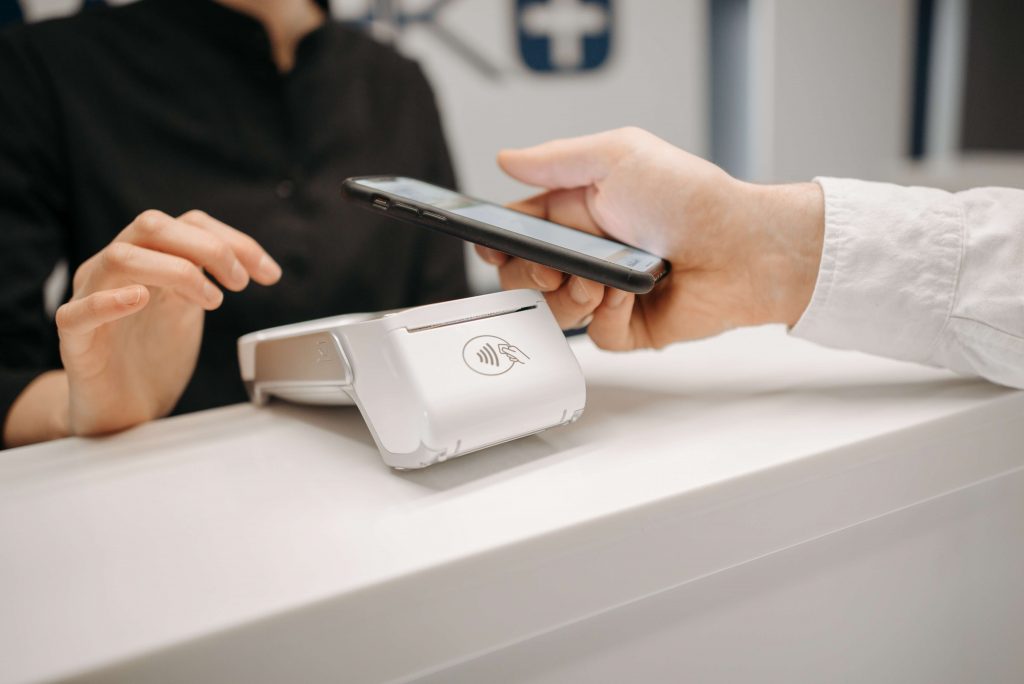This is a series on payments in the UK today, and the opportunities that it is urgent an eco-system of players including banks, TPPs (see jargon buster below), regulators, government, businesses and payers grasp, in order to benefit from more secure, lower cost and real-time payments. Only this competition driven cooperation will see the UK maintain its spot at the forefront of FinTech and deliver improvements to payments, an uplift from which the UK economy could sorely benefit right now.
This is what is going to be covered in this 4-part series:
- Part I – Today and Today’s Challenges – why organisations need to grasp this opportunity and demand better
- Part II – The future – the new kid on the payments block, ‘Variable Recurring Payments’ (VRP), and how VRP can deliver enhanced services over and above the limitations of using Direct Debit, reaping benefits for businesses and their customers
- Part III – WIIFM? What’s in it for me, and why businesses need to keep ahead of the competition and adopt now to retain their customers and deliver growth
- Part IV – the Regulatory drivers – how are we going to get to the future?
To recap, in the previous episode, Direct Debit 2.0 was described, an evolved Direct Debit, being a real-time debit, a dynamically controllable, instant, lower cost and Variable (if needed) Recurring Payment method, also known as VRP. We discussed how repeated payments could be set up, how they could be tailored to changing circumstances and the benefits of this model over and above the blunt bilateral ‘pay’ or ‘cancel’ Direct Debit of today.
In this episode III, we look at who stands to benefit from VRP.
History and Ice Cream
The Direct Debit was invented in 1964 so that Alastair Hanton could get paid for his ice cream, or so the story goes.
Alastair Hanton worked for Unilever, and Unilever needed a way to collect varying amounts from their ice cream vendors….more in the summer, melting away to a mere drip feed of sales over the winter!
Picture this: It’s 1964, the word FinTech doesn’t exist yet and people aren’t carrying around a computer in their pocket able to look up their bank balance 24×7.
Instead, in 1964, the world looked something like this:
- £10 banknotes are issued for the first time since the Second World War;
- So-called Mods and Rockers were fighting it out on Clacton beach;
- Pirate radio station Radio Caroline begins broadcasting just outside UK waters;
- The Beatles are No. 1 at Christmas and [they] Feel Fine;
- 90% of British households now own a TV;
- BBC2 goes live – first with Playschool, then Match of the Day;
- The Sun newspaper is first published;
- The third James Bond film, Goldfinger, premieres in Leicester Square; and very finally
- Britain carries out its final execution, thereafter abolishing the death penalty.
The world was different in 1964. Businesses could accept cheques, cash or set up a rigid standing order. None of this was useful to either Unilver or Unilever’s ice cream vendors, and all direct and indirect cost and inconvenience was passed onto the unsuspecting ice cream slurping public.
The Direct Debit then took four years to become fully operational, following much lobbying by Alastair Hanton to push the traditional banks, who were steadfastly sticking and not progressing to offer this varying payment method. At last it took final form as we know it still today: the Direct Debit, which became popular as an efficient and convenient way for making repeated payments, of varying amounts if needed.

The Direct Debit
Direct Debit was so new even the bankers didn’t like the idea of it at first; and payers wanted comfort that collecting businesses would give 3 days’ notice before deducting money from their account, and assurances that the payment would be made correctly for the right amount; this repeated automation was quite the novelty.
To accommodate trepidation at automated repeated payments going live for the first time, the so-called Direct Debit Guarantee was agreed, to cater to a public that had only just got TV and BBC2, and where the national bank had only just started printing £10 notes again after the war.
The Direct Debit Guarantee, very narrow and specific in its application, was created. It will only apply if here has been an administrative error with the payment: for example if a business doesn’t give 3 days’ notice of the upcoming payment, or if the amount or frequency has changed and the business hasn’t given around 10 working days’ notice. The Direct Debit Guarantee will not pay out if the goods or services being paid for by Direct Debit don’t arrive or are not as expected – that’s between the customer and the business, and they fight it out.
The payer consumer side
Direct Debit suits consumers who are on regular incomes, who have enough of a float in their account to cover Direct Debits being deducted without them noticing, who have confidence regarding their finances, who don’t want much oversight or control of payments going out of their account, and have no tolerance for friction in approving payments. For this situation, the Direct Debit serves well.
The business collecting side
Direct Debit on the collecting business side is restricted to those businesses to whom Direct Debit functionality, called origination, is made available by their bank. This will cover the big corporates like utilities and household names. The difficulty comes when smaller lesser known companies need banking facilities and want to offer their customers the option of paying by Direct Debit. Under the Direct Debit Guarantee, which is unlimited in terms of amount and time, if something goes wrong with the payment, the paying consumer must be refunded by their bank….it’s this unlimited guarantee that causes red flags in a lot of banks’ processes when deciding whether to advance Direct Debit origination capability to companies they’ve not heard of. This results in many legitimate companies that consumers want to use and pay unable to obtain the ability to take Direct Debits from their customers, as banks are only willing to extend Direct Debit origination within their risk appetite, and the banks’ risk appetites exclude a lot of businesses. This then sees companies turning either to far more expensive card payments, or payment facilitators like PayPal and GoCardless, who also charge premium fees for using their services.
So today, much like Alastiar in 1964 with his ice cream habit, when standing orders and cheques were not collecting the hundreds and thousands efficiently, as we all carry even less cash around post Covid, it’s now time for a new innovation that can better use the technology available and make people’s lives easier and more secure, both for businesses collecting payment and those wanting to pay.

Who does VRP help?
As has been demonstrated, Direct Debit isn’t for everyone, and so VRP meets the needs of:
- consumers and their business billers that are not currently supported by Direct Debit, such as many small and medium businesses who are not extended Direct Debit capability by their bank forcing them to more expensive methods of collecting payment such as cards, PayPal and GoCardless;
- those businesses who have customers who are uncomfortable signing up to monthly inflexible money leaving their account and whom therefore often suffer premium prices because of their resistance to Direct Debit, those consumers who may have lumpy, low and/or unpredictable incomes; and
- consumers who can afford it but just want more oversight and control over their money, which is not such an unreasonable desire.
So ‘What’s in it for me’ – WIIFM, for both sides of the transaction?
For business billers:
- recurring payment mandates can be set up and used immediately in real-time as soon as the end-customer has provided their own bank authenticated authorisation, allowing the business to start the underlying service in the knowledge that the first payment has been irrevocably made with the active approval of their end-customer;
- provided the end-customer remains content, and the recurring attempts to take payment are consistent with the agreement entered into between the business and consumer, the business can collect future payments on demand and in real-time;
- the business biller can be confident that the agreement they’ve entered into with the payer has been set up and authorised by their end-customer and that they are not the victim of a payment fraud;
- if the end-customer adjusts their VRP agreement or moves from automated to ‘ask me before paying’ operation, while the biller may not receive payment immediately, they do not need to re-establish the payment authority with their customer and will receive payment as soon as the customer is able and willing to pay. The biller will receive real-time notification when the payment is made or declined;
- if an end-customer delays payment for any reason, the biller can choose to withdraw the payment request at any time before it has been paid if it wishes to start a different business process as a result of delayed payment, for example proactively contacting the customer; and
- end-paying customers will have a competitive choice of providers of VRP services, not just choosing from a number of Bacs service providers offering access to the same core service. This will not only provide pricing competition but can also allow for broader feature and innovation differentiation as well.
For consumers (and SME) payers:
- payments can only be made automatically once the end-customer has actively agreed to use the service for a particular biller (by authenticating themselves with their own bank), eliminating a common fraud route with Direct Debit where the first a consumer sees of a new Direct Debit is when money has been taken from their account. This puts the customer in control;
- at any time, and in real-time, an end-customer can change or cancel the mandate for a particular biller (maintaining full control of their payments), including changing from automated payment to ‘ask me before paying’. Unlike Direct Debit there is no gap of multiple working days between a mandate being changed and their bank acting on the new instructions. Also unlike Direct Debit, with VRP, the operation of payment, such as amount or frequency, or an additional top up payment, can be changed without having to fully cancel the agreement;
- unlike Direct Debits, which may show as a pending payment in a payer’s account (that is pseudo-ringfenced to come out, but not showing in their account balance), the payment has either been made, and shows as a completed debit, or has not been, and can be cancelled or changed;
- unlike Direct Debits, the end-customer never needs to provide the biller with any of their bank account details. The biller identifies their customer using their email address or mobile number. The end-customer should be able to change the bank account they wish payments to come from at any time with the TPP with no impact on their biller.
Jargon buster:
TPPs or Third Party Providers, were created under legislation, the 2nd Payment Services Directive (PSD2). TPPs are authorised and regulated by the FCA with assessed and approved business models, security systems, policies and processes, and people, so you can be sure they are fit and proper with secure systems. Only TPPs regulated by the FCA can provide Open Banking payment services, so you know they’ll be as safe as bank systems.
So what does this mean for UK businesses and their FinTech partners?
For innovation to take off, it has to be useful to people’s everyday lives, with just the right amount of friction that must itself serve a purpose and not be purely burdensome. Is it any wonder why these inventions didn’t catch on?
• Google glass – smart glasses – effectively a smart display to be worn as a pair of glasses, leaving hands free and activated via voice command, pitted as the ubiquitous computer….but the potential for people to be recording others (or the show) whilst watching, without consent, rendered the application useless;
• Smart fridges – never run out of milk again or be left only with the brown broccoli at the back of the veg drawer, a fridge that would know what you needed and when, and be sure to order it in….but the prospect of scanning every item not only at the checkout but also when the items are put in the fridge meant that few people had time for the not-so-smart-fridge; and
• the Segway that was going to revolutionise transport, be far more environmentally friendly, take up less space on the road….but if you live in a country with inclement weather or heavy traffic making not being in a steel box hazardous, it’s likely to mean the Segway is in fact only seen in the parks adorned by tourists attracted by the limited novelty.
But payments are something people use every day. People’s daily lives have become much more dynamic, changeable to the second, and interconnected through the smart phone in everyone’s pocket from which a business can be run and an up to the second bank balance can be checked.
Direct Debits were revolutionary and fitting for 1964 and for nearly 50 years, but now is the time for the next generation of the Direct Debit, VRPs, that can be managed and monitored 24×7, at lower cost, and more securely and conveniently than before.
In our final episode, we consider:
- Part IV the Regulatory drivers – how are we going to get to the future?
Get Part I here – Today and Today’s Challenges – why we need to grasp this opportunity and demand better
Get Part II here – The future – the new kid on the payments block, ‘Variable Recurring Payments’ (VRP), and how VRP can deliver enhanced services over and above the limitations of using Direct Debit, reaping benefits for businesses and their customers
Businesses can’t afford to not be preparing to offer its customers VRP payment capability and, with the economy as difficult as it is right now, making the direct and indirect cost savings that come with it; dally, and customers will find a provider who didn’t.
To find out how Ordo can help your business:



